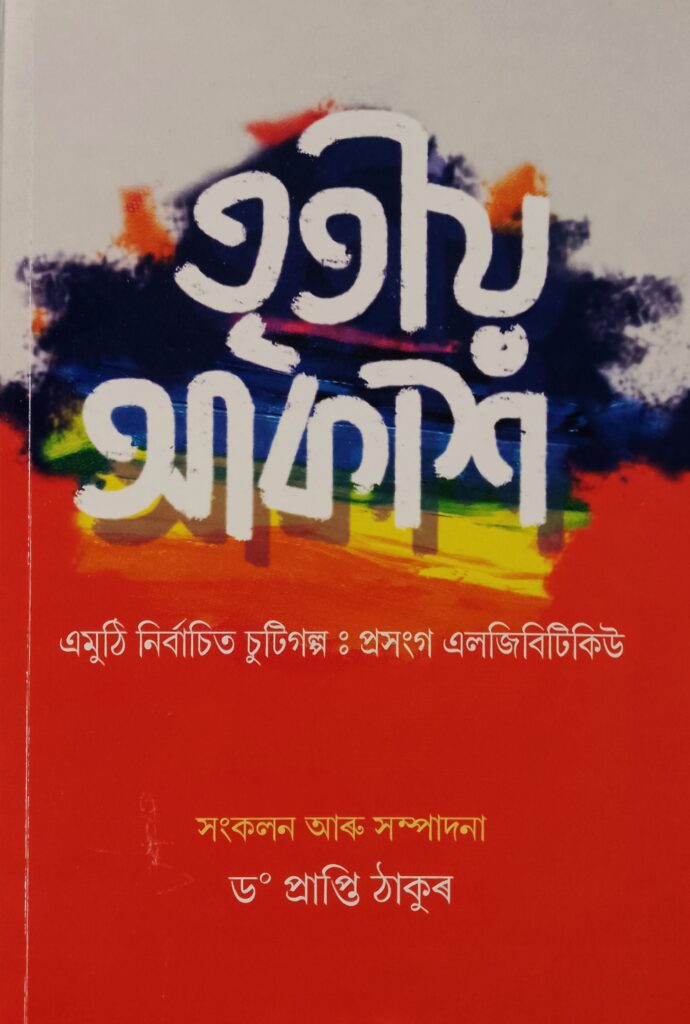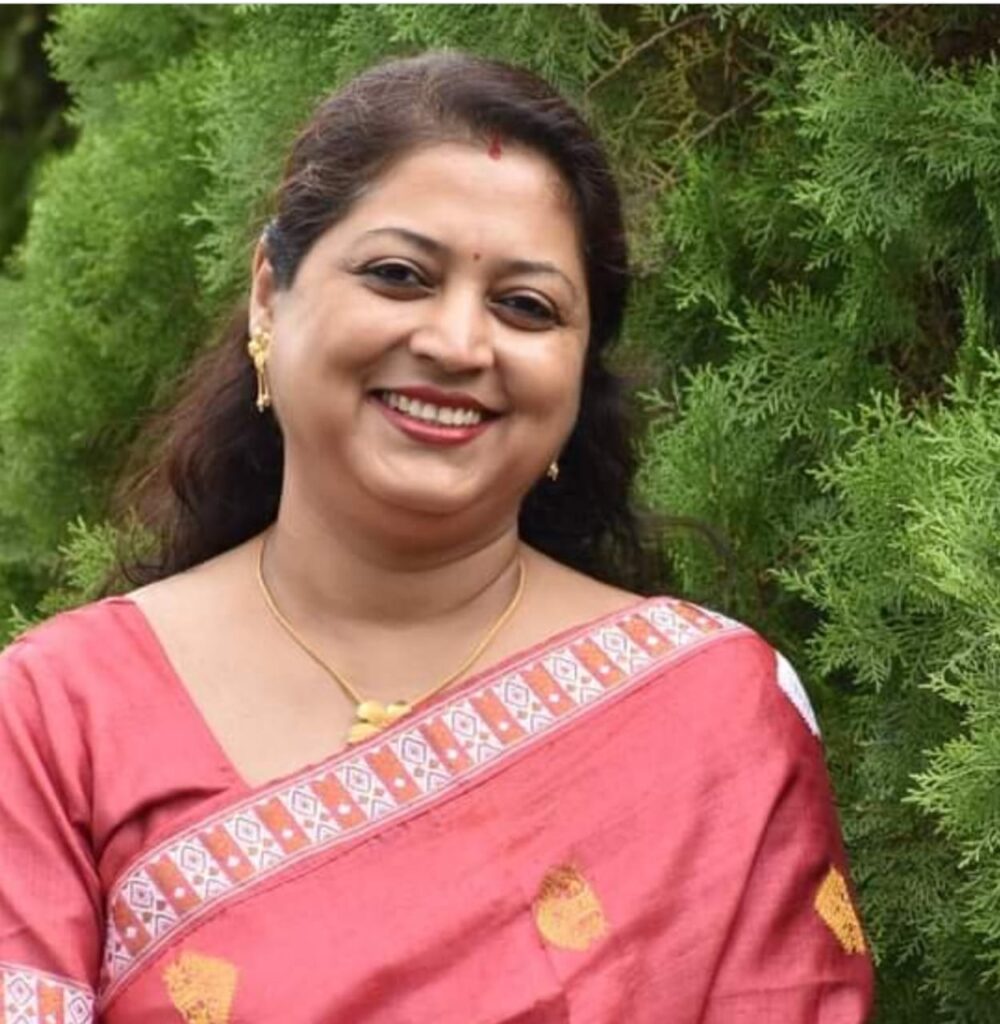A Fresh Perspective on Queer Studies in Assamese: ‘Tritiya Akash’
“Tritiya Akash,” translating to “the third sky,” is more than just a title; it represents a bold venture into uncharted territories. Dr. Prapti Thakur compiled and edited this anthology of short stories in Assamese, delving deep into the lives, struggles, psychology, and obstacles faced by the queer community. While Queer studies are gaining traction in various writer and researcher communities, this anthology stands out for several reasons. In Assam, Queer studies in the academic field and other creative pursuits are in the infant stage. Unlike most academic institutions that confine their publications to the prescribed syllabus, our educational institution has dared to publish such a book as part of our academic endeavour. Additionally, this anthology challenged the prevailing norms by openly discussing a taboo topic for many.
It’s noteworthy that Sarupathar College isn’t nestled in the bustling city but rather situated in upper Assam, distanced from the state’s intellectual hub. Dr. Prapti Thakur, the college’s principal, deserves commendation for advocating such a radical academic approach.
This anthology comprises thirty-one short stories penned by writers from across the state, spanning various age groups. However, it’s noticeable that only two senior writers contributed: Sneha Devi (1916-1990) and Dr. Gobinda Prasad Sarma. Sneha Devi, primarily a homemaker, wasn’t extensively involved in literary social circles. Hence, witnessing her empathy toward such a significant topic is surprising and heartbreaking, especially amidst limited discussions. On the other hand, Dr. Gobinda Prasad Sarma, a former Professor of Guwahati University, known for his scholarly creative works and openness, bravely tackled the social taboo by addressing the theme of lesbians in his story. While the other writers explore diverse themes and social issues, delving into such a topic is not unusual for them. Not all stories have high literary standards, yet they should be applauded for their theme and creative openness.
Dr. Pori Hiloidari contributed a comprehensive critical preface, dissecting the short stories’ thematic and structural nuances. This preface serves as a guiding light for writers, enabling them to grasp the theme’s essence and craft more impactful narratives from varied social perspectives.
This collection has sparked numerous questions, prompting us to seek insights from the Editor and the college’s principal, Dr. Prapti Thakur.
What inspired you to edit and publish this anthology?
The inspiration behind curating this anthology stemmed from the recognition that queer subjects, despite being incorporated into the English literature curriculum of Delhi University, remain largely unaddressed within the Assamese literary syllabus. Consequently, this project aims to bring these narratives to the forefront, fostering a broader discourse on queer representation within the academic landscape.
Considering that the Queer subject may not be part of your college syllabus, how do you anticipate this collection contributing to academic discourse?
Although the queer subject matter may not currently be a part of the prescribed college syllabus, this collection holds the potential to enlighten our students about the diverse content of Assamese short stories. The content of this anthology is socially significant, and I think our students will become aware of a social issue that is still regarded as taboo. From an academic point of view, it can be said that presenting a diverse array of narratives that explore queer experiences prompts critical engagement and encourages intellectual inquiry into the multifaceted dimensions of gender and sexuality in the Assamese context. This anthology provokes scholarly discussions, challenging existing paradigms and enriching the philosophical landscape.
How have your colleagues and students responded to this anthology?
The reception of this anthology among colleagues and students has been overwhelmingly positive. They were very enthusiastic from its inception as they felt that our college would do something radical. Without the support of my colleagues, it would not have been possible to publish a book on such a topic from an educational institute.
Could you share the reactions of both readers and writers to the collection?
The reactions from both readers and writers have been equally commendable. During the anthology’s release on January 7th, 2023, in the presence of several esteemed writers, noted gender activists, and readers, the project garnered widespread acclaim and appreciation for its significance in amplifying marginalised voices and promoting inclusivity within the literary norm from an academic institution.
Were there any obstacles encountered during the production process?
Remarkably, the production process was devoid of any substantial obstacles. All the writers participated in the project with excellent support for the cause. Dr. Pori Hiloidari, a leading literary critic of the state, wrote the anthology’s preface at my request. I am sure this preface will stand as a significant work in Queer studies in the Assamese language.
What are your plans regarding publishing books on this topic and others?
Our Sarupathar College is very excited to publish more books on this queer topic and other important, socially significant, and literary themes. We are committed and determined to work on projects that benefit our students’ community and society.










Thank you for being so supportive. Regards
A bold and commendable initiative. My congratulations to the authors.